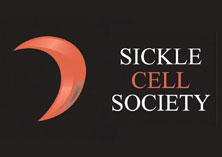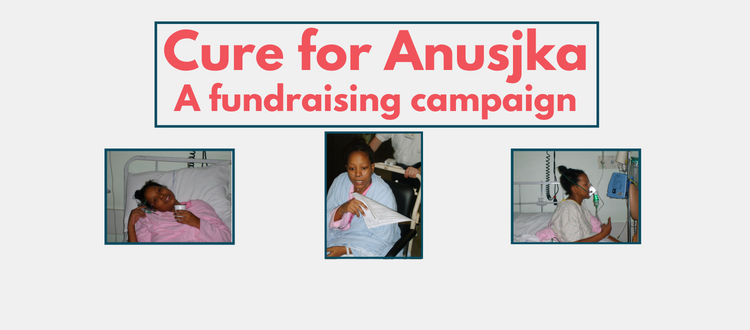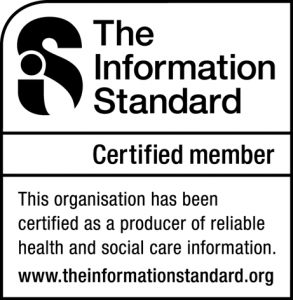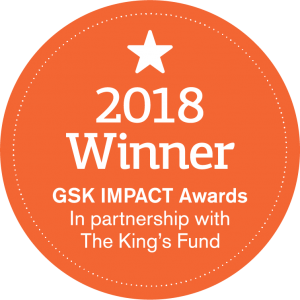Sickle Cell Cure for Anusjka
Anusjka has struggled all her life with excruciating pain, fatigue, blood transfusions, hip replacements and the fear of sudden death due to sickle cell. There is now a new cure for adults living with sickle cell. It is not funded on the NHS therefore it has to be done privately. We are working with Anusjka to try and raise £55,000 to pay for this cure. Her sister will be the donor as she is a 100% match. You can donate here: www.gofundme.com/cureforanusjka
Please read on to learn more about her story. Thank you for your support.
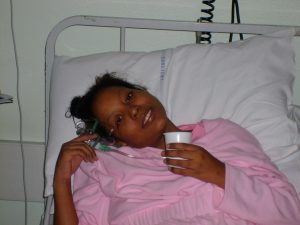 “I’m Anusjka, a wife, a mother, a daughter and a sister who has lived 39 years in excruciating pain and the fear of death due to Sickle Cell Disease. Join me on this fundraising drive to LIVE and not just SURVIVE.”
“I’m Anusjka, a wife, a mother, a daughter and a sister who has lived 39 years in excruciating pain and the fear of death due to Sickle Cell Disease. Join me on this fundraising drive to LIVE and not just SURVIVE.”
Sickle cell is an inherited blood disorder affecting approximately 15,000 people in the UK. The main symptoms of sickle cell disorder are anaemia and episodes of severe pain. People with sickle cell are at risk of complications stroke, acute chest syndrome, blindness, and bone damage. Over time people with sickle cell can experience damage to organs such as the liver, kidney, lungs, heart and spleen. Death can also result from complications of the disorder.
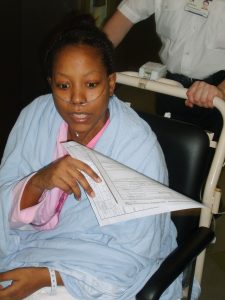
“I was born with sickle cell anaemia and have had many death defying experiences in my life. Due to this disease I have had both my hips replaced and although unrelated, I had a tumour in my spine in 2016 which was successfully removed. This meant I had to learn to walk again. I really want to be able to now have the opportunity to really LIVE as the opportunity for a cure presents itself.”
As part of our support for Anusjka’s transplant fundraiser we spoke to her doctor, Dr Mickey Koh (consultant haematologist and Director of the Stem Cell Transplantation programme at St George’s Hospital). Dr Koh told us matched allogeneic transplants for children with sickle cell anaemia is well established and confirmed as a successful modality for achieving cures. A matched allogeneic stem cell transplant means needing to find a suitable donor that is matched to the patient.
He explained that transplants for adults are less established for a variety of reasons: many are less fit as they have been affected by the sickle cell disease and therefore have reduced critical organ function (heart, lungs, kidneys), finding a suitable matched donor and the issue of graft rejection.
Dr Koh went on to explain that currently, transplants for sickle cell in adults is not routinely funded by the NHS. In view of the potential serious risks involved with the procedure, patient selection is very important.
Patients need to have relatively good organ function and be deemed fit for the transplant. They also need to be committed as they will have to spend a month in hospital and will need to take immunosuppressants for a period of time post-transplant. These transplants should also be done in centres with such expertise and to date, St Georges has the largest number of adult sickle patients who have successfully underwent an allogeneic transplant.
Anusjka and Dr Koh are both committed and have been working together to make the transplant happen for the last year. Dr Koh explained that finding a match also presents a big challenge. Siblings often present the best chance for being the matched donor but they too are often affected by the same disease. Fortunately, Anusjka has a 100% match in her unaffected sister and now just needs to raise the funds to go through with the transplant.
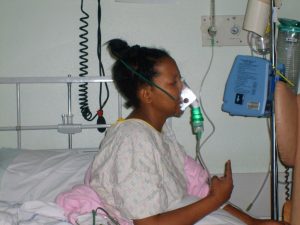 “I am extremely excited about the possibility that one day I may be able to ‘LIVE and not just SURVIVE. Please help me in this effort to raise £55,000. Sickle Cell Disease is unpredictable. It can cause organ damage and death at any time. It is essential to have this cure as soon as possible. I would be so grateful if you will join me in this fundraising drive to LIVE and not just SURVIVE.”
“I am extremely excited about the possibility that one day I may be able to ‘LIVE and not just SURVIVE. Please help me in this effort to raise £55,000. Sickle Cell Disease is unpredictable. It can cause organ damage and death at any time. It is essential to have this cure as soon as possible. I would be so grateful if you will join me in this fundraising drive to LIVE and not just SURVIVE.”
Dr Koh said that for Anusjka there would be a 75-80% success rate. Please help give her this chance by donating here: www.gofundme.com/cureforanusjka
